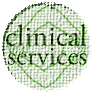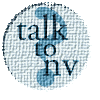BEGINNING THE JOURNEY TOWARD SPEECH DEVELOPMENT
During the early months of development, children begin the journey that leads them toward communicating with their voice and meaningful sounds. Many children reach the destination of speaking in words and sentences. We call this the Pre-Speech Journey. Pre-speech skills include the development of breathing, voicing and sound exploration. These pre-speech skills depend on a child's ability to control movement in all parts of the body. Breathing, vocalization and oral movements for feeding and sound production are the physical building blocks for speech development. Pre-speech skills blend with the child's acquisition of overall communication and language development. When children have difficulty in these areas, they typically have difficulty with later speech production.
The workshop will describe both the typical development and challenges that interfere with children's development of pre-speech skills. Many video examples of therapy to support the development of these skills will be included. Although many therapeutic skills will be discussed and illustrated, this workshop focuses on the overall approach to therapy rather than emphasizing the specific techniques used. The program will address the pre-speech issues of children who do not speak as well as those who are communicating through simple sounds and speech.
COURSE DATES, LOCATIONS
& SPONSORING ORGANIZATIONS
Please contact the sponsoring organization for a brochure and registration information for workshops in 2018
This workshop is not scheduled for 2018.
INSTRUCTORS
Suzanne Evans Morris, Ph.D., is a speech-language pathologist with New Visions near Charlottesville, Virginia. She is nationally and internationally known for her work in identifying and treating young children with feeding and pre-speech disorders. Dr. Morris is the director of New Visions, which sponsors innovative workshops for the teaching of feeding-related skills, and provides family-oriented clinical services. She maintains a practice which includes direct clinical work, continuing education workshops, development of clinical materials and clinical research. Dr. Morris has studied Neurodevelopmental Treatment approaches extensively in England, Switzerland, and the United States. She is the author of the Pre-Speech Assessment Scale, a rating scale for the measurement of pre-speech behaviors in children from birth through two years, and coauthor of Pre-Feeding Skills: A Comprehensive Resource for Mealtime Development (2nd edition), the Mealtime Participation Guide. and the Homemade Blended Formula Handbook.
COURSE OBJECTIVES
The workshop will enable the participant to:
-
Describe the differences between language, speech and pre-speech development
-
identify the interrelationship between the development of movement, feeding and pre-speech skills
-
identify the component-skills for efficient respiration, phonation and sound production.
-
identify difficulties with postural tone and movement that influence coordination of the mouth during feeding and early sound production,
-
evaluate the physical, sensory, communication, learning, and oral-motor skills that support or limit a child's development of pre-speech skills.
-
observe the physical, sensory, communication, learning, and oral-motor abilities and behaviors that limit a child's readiness for more mature pre-speech skills.
-
describe the components of a pre-speech treatment program
-
provide an appropriate pre-speech therapy program for children who have different abilities, skills and needs.
SCHEDULE
DAY 1
8:30
Registration
9:00
What are pre-speech skills? How do they differ from speech skills?
The development of communication and interaction skills in the typically developing infant from birth to three years
The development of receptive and expressive language in the typically developing infant from birth to three years
10:30
Morning Break
10:45
Understanding the therapeutic management of children with pre-speech disorders related to motor challenges
12:00
Lunch
1:00
Gross motor development – a foundation for specific respiration and phonation skills
Feeding development: a foundation for oral movement skills and sound exploration.
3:00
Afternoon Break
3:15
Development of pre-speech skills in the typically developing infant: birth to fifteen months
4:30
End of Session
DAY 2
8:30
Characteristics of children with pre-speech difficulties related to poor motor coordination
Observing and assessing the components of pre-speech development in specific infants and children with motor challenges
Assessment – organizing information
10:30
Morning Break
10:45
Moving from assessment to treatment
12:00
Lunch
1:00
Treatment components
-
Physical coordination
-
Sensory processing
-
Respiration and phonation
-
Oral-motor control
-
Sound play
3:00
Afternoon Break
3:15Putting it all together – specific children in therapy
4:30
End of Session







